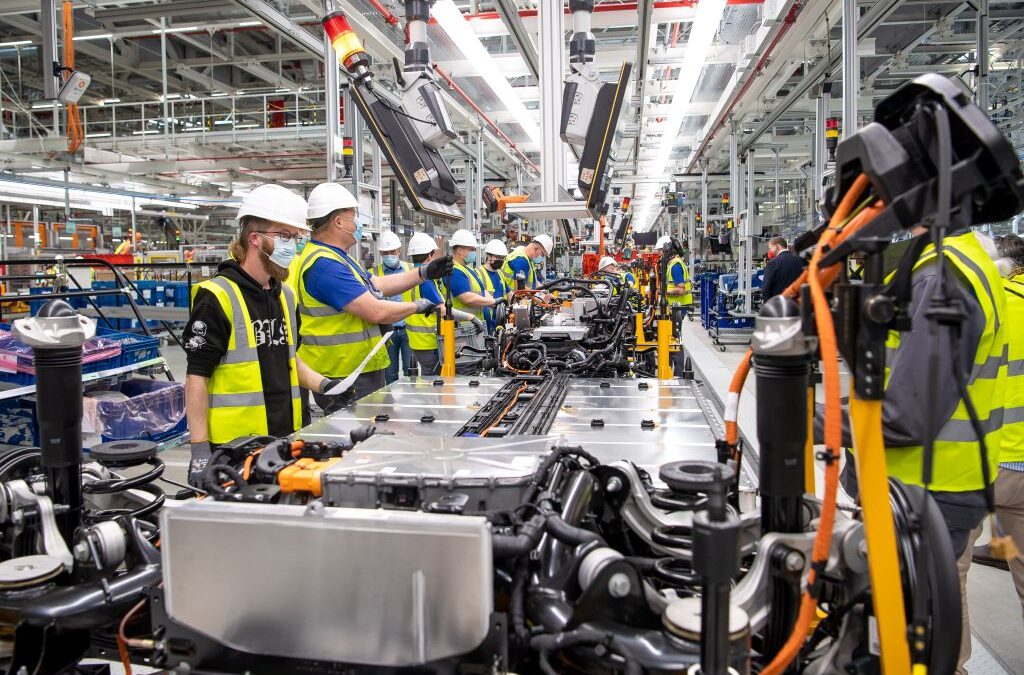Key Takeaways
- Six automotive manufacturers, all signatories of the ZEV Declaration, collectively represented 19% of the light-duty vehicle market in 2022.
- Automakers increased their electric vehicle sales in 2022, with BYD stopping production of ICE vehicles and Volvo divesting from ICE engine production.
The global ZEV Declaration currently has fourteen automotive manufacturer signatories. They represent both large, global companies as well as smaller, local brands. By signing the Declaration, these manufacturers have committed to work towards reaching 100% zero emission new car and van sales in leading markets by 2035 or earlier, supported by a business strategy that is in line with achieving this ambition. As the ZEV market continues to grow, the Accelerating to Zero Coalition analyzed six automakers, for which we have comprehensive data, to better illustrate the role of the automotive industry in this global transition.
Tracking progress
Momentum in the global transition to a zero-emission transportation sector is clear – General Motors (GM), Ford, Mercedes-Benz, Volvo Cars, Jaguar Land Rover (JLR), and BYD each grew their electric vehicle sales share in 2022 (Figure 1). Together, they are responsible for 19% of global vehicle sales.
In terms of sales volume, BYD more than tripled its EV sales year-over-year, Volvo Cars also increased its electric LDV sales year-over-year, registering 31% share in 2022. This is followed by Mercedes-Benz (15%), GM (12%), and Ford (5%). JLR increased its EV sales share from 13% to 15% in 2022, however it is the only OEM in this group with a drop in an absolute EV sales number from the previous year.
With an even bigger step, China’s largest EV maker BYD stopped producing combustion engine cars completely as of March 2022, reaching almost 100% electric LDV sales share in 2022. Over half of these sales were battery electric.
Figure 1: Global electric light-duty vehicle sales share by OEM (2021-2022)
*GM data includes joint venture sales in China | Source: MarkLines, June 2023
ZEV Targets
As we look to the future, many companies have committed to ambitious ZEV targets, an important indicator of their electrification commitments. As noted, BYD was the only manufacturer to announce the end of ICE vehicle sales in the fall of 2021, achieving its target in March 2022.
Volvo and Mercedes-Benz plan to sell only zero-emission cars and vans worldwide by 2030, followed by GM and Ford in 2035. Jaguar targets reaching 100% BEV sales by 2025, and Jaguar Land Rover aims at 60% BEV sales share by 2030.
However, some automakers delayed their interim targets because of production hurdles and disruptions to the supply chain in 2022. Mercedes-Benz postponed its internal target of achieving 50% EV sales share from 2025 to 2026, while GM pushed back its ambitious target of producing 400,000 EVs in North America from 2023 to the first half of 2024.
Building Capacity
Two automakers accelerated the shift to full electrification with major supply chain investments worldwide. BYD is growing its global presence with a plan to build a new $1.2 billion battery factory in central China, expand its production in Europe, and capture 40% of India’s EV market by 2030. As the world’s second-largest battery producer, BYD will invest $290 million in building a lithium cathode factory in northern Chile to access lithium reserves and start production by 2025.
Volvo Group will invest $84 million in South Korea to produce electric SUVs this year, with a goal of reaching 20% EV sales. In partnership with Northvolt, Volvo will also open a new battery cell plant in Sweden by 2025, supplying batteries for half a million electric cars annually. The company also fully exited the manufacturing and development of internal combustion engines by divesting from the powertrain company Aurobay, and announced the end of all diesel car production in early 2024.
Mercedes-Benz plans to invest over 60 billion euros in all-electric power trains and software between 2022 and 2026 and signed a Memorandum of Understanding with the Polish government to build a new plant for electric van production. In addition, the company intends to create a global network of over 10,000 high-power charging points in North America, Europe, China, and other key markets by 2027.
Jaguar-Land Rover will invest £15 billion over the next five years in developing electric cars and autonomous driving vehicles, including converting two manufacturing facilities in the United Kingdom to EV production.
North American automakers are also taking steps to expand their EV and charging infrastructure portfolio, despite the bottlenecks in production. GM partnered with Lithium Americas, investing $650 million to secure lithium supply from the US and Argentina. Ford announced battery production plants in Michigan and Kentucky together with SK Innovation in North America and they also entered a joint venture agreement with LG Energy Solution and Koç Holding to produce battery cells in Turkey for the European market.
Demonstrating the importance of cross-collaboration, which is a key element of the Accelerating to Zero Coalition, GM and Ford collectively entered into a partnership with Tesla to allow their electric cars access to Tesla’s superchargers. Separately, GM also announced a $750 million investment for charging infrastructure in the US.
Explore more progress tracking here »

